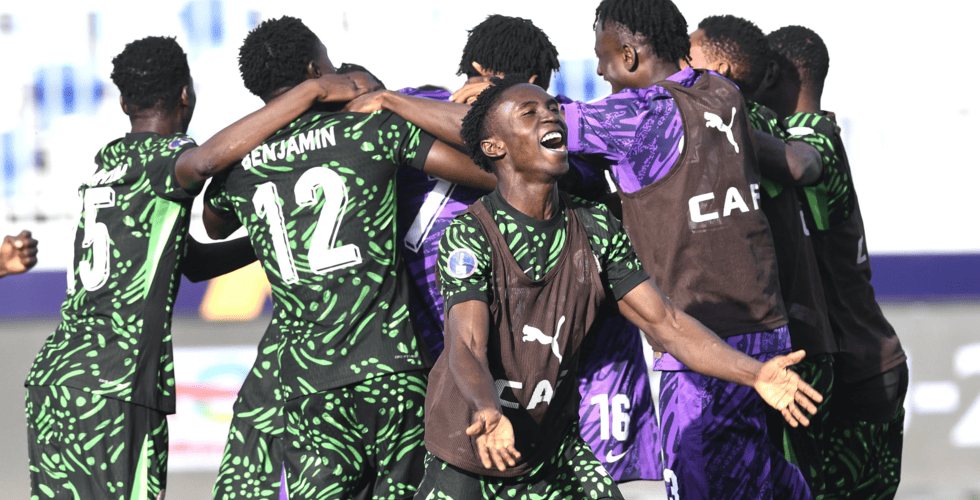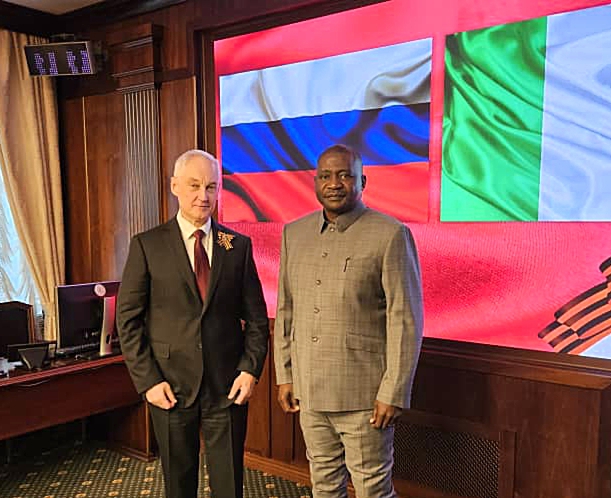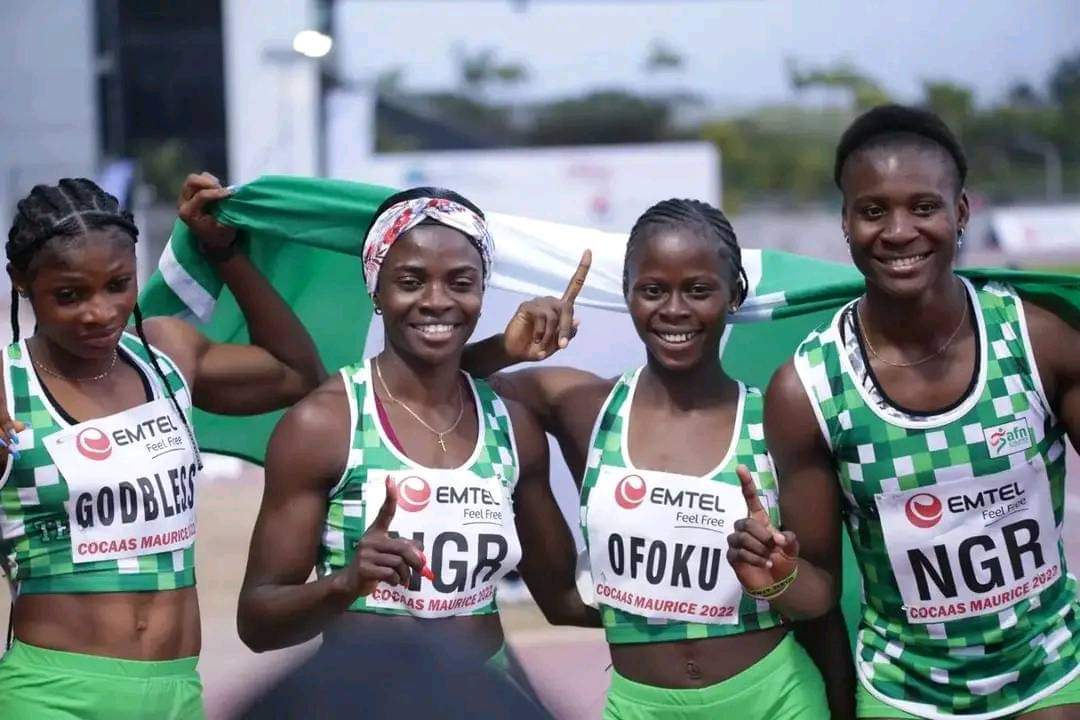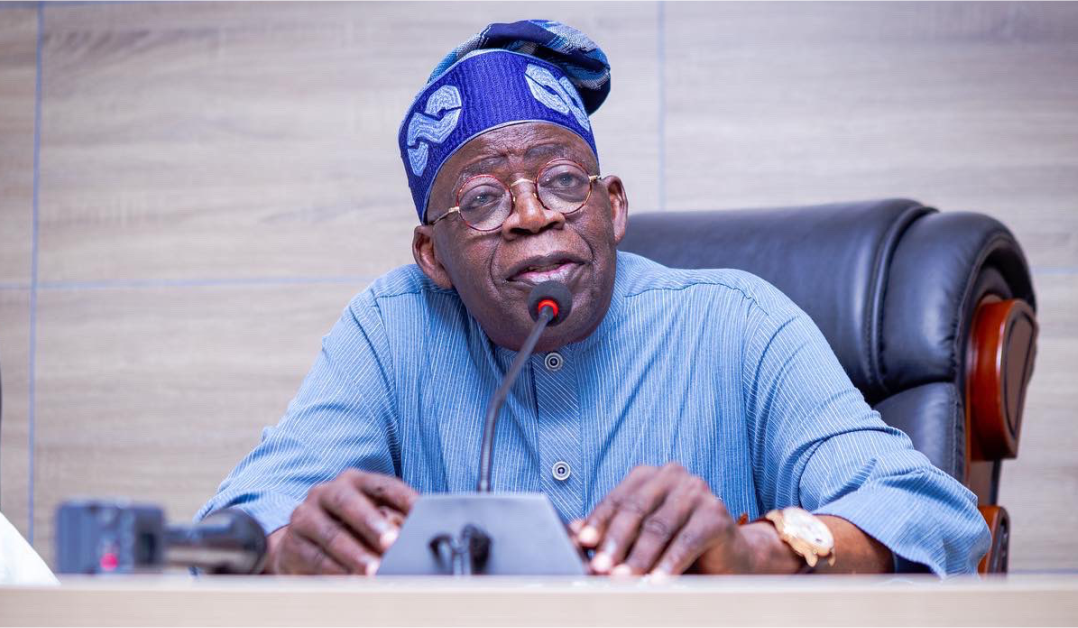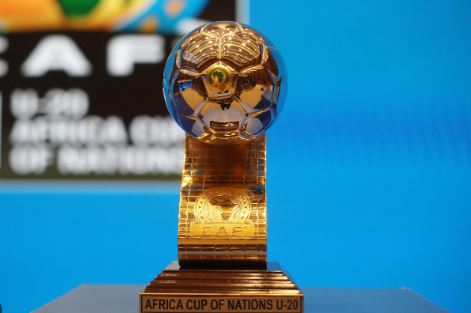Nigeria held their nerve to secure a place in the semi-finals of the CAF U-20 Africa Cup of Nations in Egypt, defeating defending champions Senegal 3-1 on penalties.
NAN reports that this was after a goalless draw in regulation and extra time at the Suez Canal Stadium on Monday.
The West African giants renewed their fierce rivalry in a tense quarter-final that saw both sides create scoring chances, but ultimately fail to break the deadlock in 120 minutes of pulsating action.
The Flying Eagles, unbeaten in the group stages, maintained their composure in the shootout with spot kicks expertly converted by Precious Benjamin, Emmanuel Chukwu and Israel Ayuma.
Senegal, by contrast, faltered under pressure — Pierre Dorival’s, effort was saved, while Mame Mor Faye’s was denied, and Ousmane Konaté crashed his attempt off the crossbar.
Seydi Diouck netted Senegal’s only penalty, but it was not enough to prevent the reigning champions from exiting the tournament.
The result marks Nigeria’s eighth successive quarter-final win at the U-20 AFCON under the current format.
They now advance to the semi-finals, where they will look to maintain their record of never losing a semi-final tie in this competition.
Despite the final scoreline, both sides had moments where they could have clinched victory in open play.
Nigeria’s Kparobo Arierhi and Divine Oliseh each forced saves from Senegal keeper Mouhamed Sissokho, while Senegal’s Cheikh Thiam came agonisingly close in the 42nd minute with a header that rattled the post.
As the match wore on, fatigue set in but the determination from both camps never wavered.
Nigeria’s tactical substitutions — including the introduction of Precious Benjamin and Rickson Mendos — added attacking impetus late on.
Senegal, on their part, reshuffled to find a breakthrough with the likes of Seydi Diouck and Mame Mor Faye.
Extra time saw Nigeria press with renewed energy.
Tahir Maigana’s curling strike in the 106th minute drew a fine stop from Sissokho, while Israel Ayuma’s long-range effort two minutes later also required intervention.
Yet, despite Nigeria’s dominance in the closing stages, the deadlock remained.
Nigeria’s goalkeeper Ebenezer Harcourt, who had gone largely untested in the shootout, emerged as a quiet hero.
His save against Mame Mor Faye’s spot kick proved pivotal in tilting the balance.
Senegal, who came into the tie with a strong defensive record and ambitions to retain their crown, were ultimately undone by Nigeria’s discipline and precision in the decisive moments.
The result also marked their first loss in a knockout match since 2017.
In a post-match interview, Nigeria head coach Aliyu Zubairu praised his side’s resilience.
“We prepared for all scenarios, including penalties.
“I’m proud of the boys for executing under pressure,” he said.
With this result, Nigeria also earned a spot in the U-20 World Cup, scheduled for Chile from Sept. 27 to Oct. 19.
With this result, Nigeria move one step closer to a record-extending eighth U20 AFCON title, while Senegal will now reflect on what could have been after a hard-fought campaign.
The victory also earned Nigeria a spot in the U-20 World Cup slated for Sept. 27 to Oct. 19. in Chile.
The four semi-finalists from the on-going U-20 AFCON automatically qualifies to represent Africa at the FIFA U-20 World Cup in Chile.
